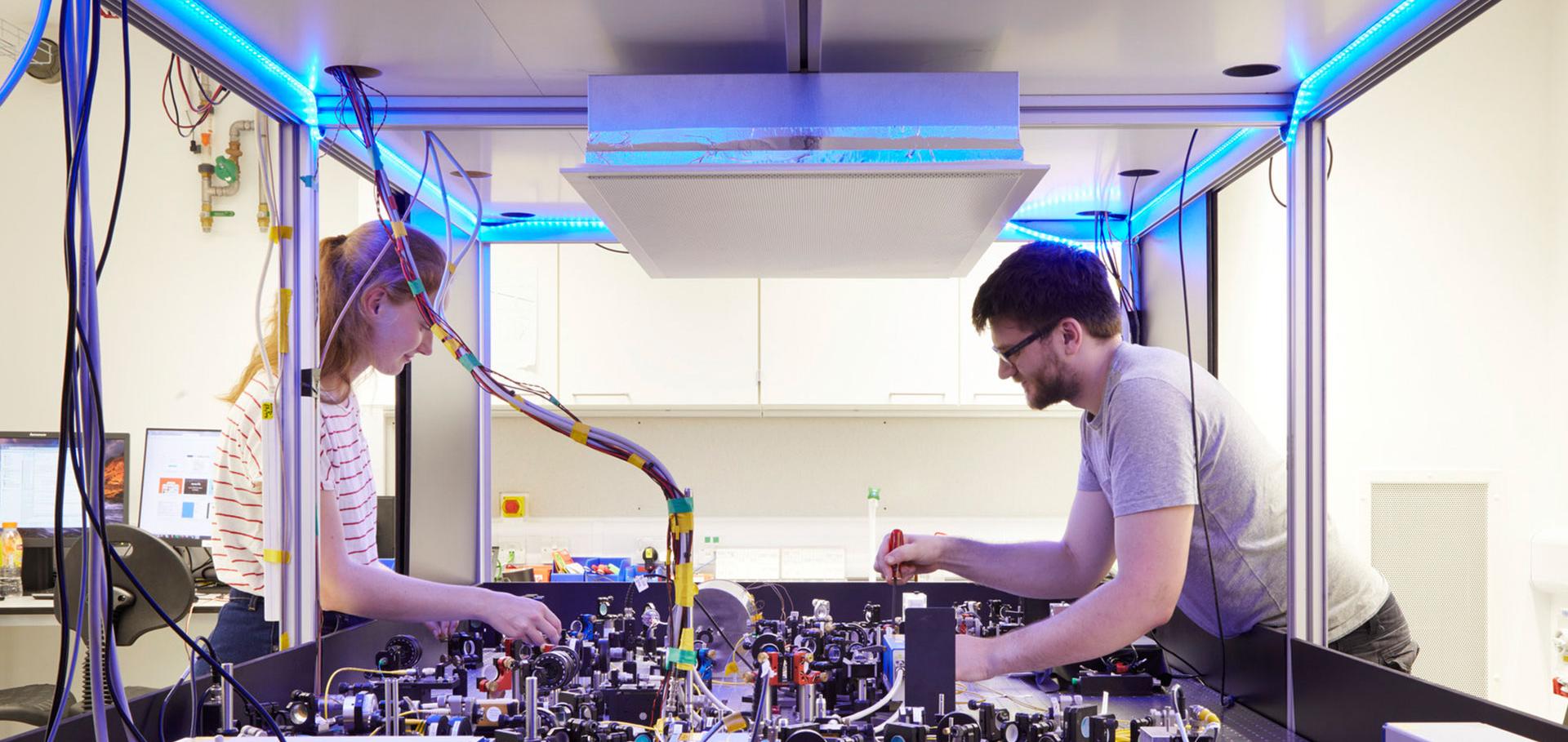A scheme for entanglement extraction from a solid
New Journal of Physics 8 (2006)
Abstract:
Some thermodynamical properties of solids, such as heat capacity and magnetic susceptibility, have recently been shown to be linked to the amount of entanglement in a solid. However, this entanglement may appear a mere mathematical artefact of the typical symmetrization procedure of many-body wavefunction in solid state physics. Here we show that this entanglement is physical, demonstrating the principles of its extraction from a typical solid-state system by scattering two particles off the system. Moreover, we show how to simulate this process using present day optical lattice technology. This demonstrates not only that entanglement exists in solids but also that it can be used for quantum information processing or as a test of Bell's inequalities. © IOP Publishing Ltd and Deutsche Physikalische Gesellschaft.Geometric phase induced by a cyclically evolving squeezed vacuum reservoir.
Phys Rev Lett 96:15 (2006) 150403


